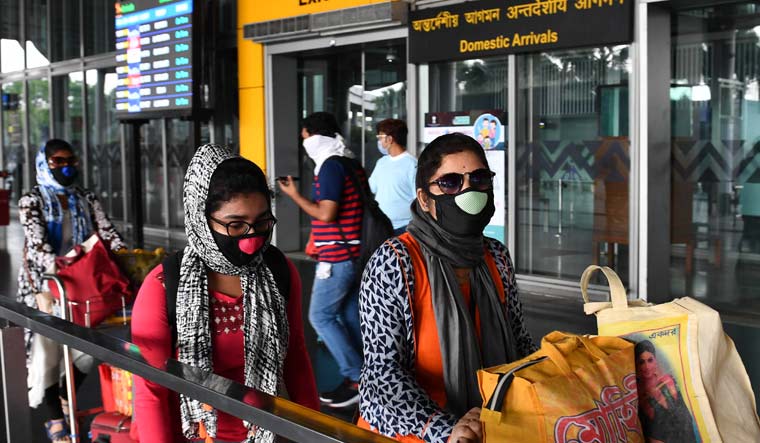Fears of community transmission of the COVID-19 virus had risen after the infections started to appear in those with seemingly no travel history. The latest example of the same was the case of a 47-year-old man, admitted at the Indore government hospital as a coronavirus suspect, who died on Thursday, as reported by PTI. His test reports are awaited. The man was earlier treated at the Ujjain civil hospital and was admitted to the Indore hospital on Wednesday with symptoms of breathlessness. The patient did not have a travel history.
However, the government assured there has been no solid evidence of community transmission of COVID-19 in India as yet, and the infection appears to be relatively stabilising considering the rate at which it is increasing,. At the same time, it said the latest figures do not establish a clear trend and in no way the government is relaxed about anything at this point. The death toll due to COVID-19 rose to 17 in the country on Friday and the number of coronavirus cases climbed to 724, according to the Health Ministry. In its updated figures at 9.15am, the ministry stated that four deaths were reported from Maharashtra while Gujarat had registered three deaths. Karnataka has reported two deaths so far, while Madhya Pradesh, Tamil Nadu, Bihar, Punjab, Delhi, West Bengal, Jammu and Kashmir and Himachal Pradesh have reported one death each.
In stage 2, which we currently believe ourselves to be in, the disease is transmitted locally from infected persons who are in close contact or from those who travelled abroad. The source of the virus can be traced easily, as opposed to community transmission stage 3—the phase in which people are unable to identify how they got the virus. If community transmission begins, it would be extremely difficult for governments to contain the rapid spread of the disease. At Stage 4, the situation is similar to that of Wuhan, where the disease spread like wildfire.
Lav Agarwal, Joint Secretary in the ministry of health, told a press conference that while the "numbers of COVID-19 cases are increasing, there appears to be relatively a stable trend or even little bit reduction in the rate at which they are increasing". "This however does not establish a clear trend and in no way are we relaxed about anything at this point," he added. Agarwal said the ministry is hopeful of containing the spread of the coronavirus by social distancing policy, conducting a proper contact tracing of positive cases and by ensuring that all people at home quarantine are monitored.
While adding a note of caution, Agarwal said the community transmission phase of the disease will begin if the community and the government do not work collectively and follow the set guidelines of social distancing, home quarantine and treatment. He urged people to support the lockdown announced by the prime minister, saying social distancing can be an effective intervention to break the chain of transmission and all the efforts will go into waste even if one person does not follow the policy for containment of the disease.
"Continued people's support for implementation of lockdown is needed," he said. Commenting over the cases reported in Hyderabad and Bhilwada, Raman R. Gangakhedkar, head of the Epidemiology and Communicable Diseases at ICMR said, "Going by one or two cases, we cannot say there has been community transmission. Also why should we hide if there has been a community transmission. There is still no solid evidence to say there has been community transmission of coronavirus infection in India," he asserted. Agarwal further said that 17 states have started work on earmarking hospitals for dedicated treatment of COVID-19 patients on their request.
He also denied that the virus spreads through mosquitoes.
He further said that the cabinet secretary had discussed with all chief secretaries the lockdown measures and preparedness of states in terms of hospitals and logistic arrangements and hascalled for making an arrangement to ensure essential commodities reach the people. He said the ministry in collaboration with AIIMS, Delhi, started providing orientation of protocol by training doctors online on epidemiology, infection control practices and case management. "Further the National Institute of Mental Health (NIMH) is involved by the government for conducting behavioural module training," he said. Agarwal informed that about 64,411 people across the country have been brought into surveillance.
On private laboratories being given approval for testing of COVID-19 Gangakhedkar said, though approval has been given, they have not been started testing as they are procuring the test kits. Prime Minister Narendra Modi announced a nationwide lockdown for 21 days from Tuesday midnight.
-Inputs from PTI


